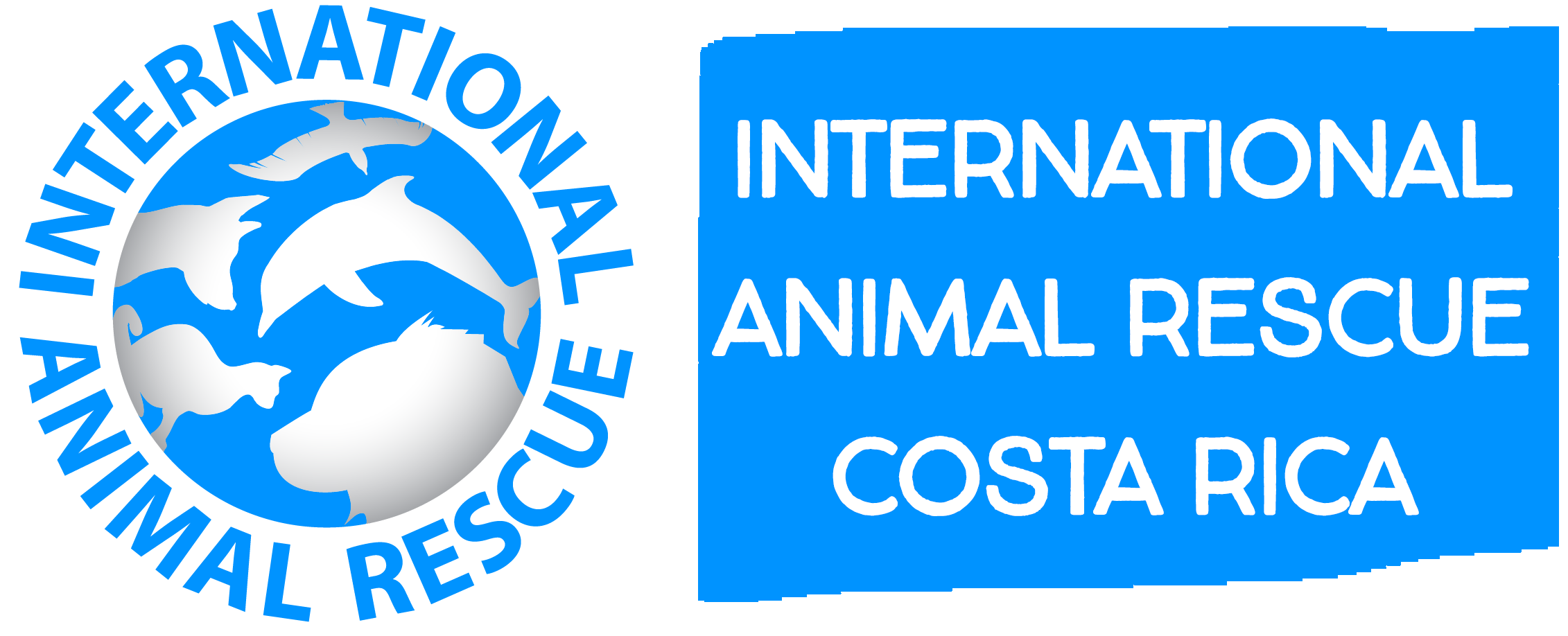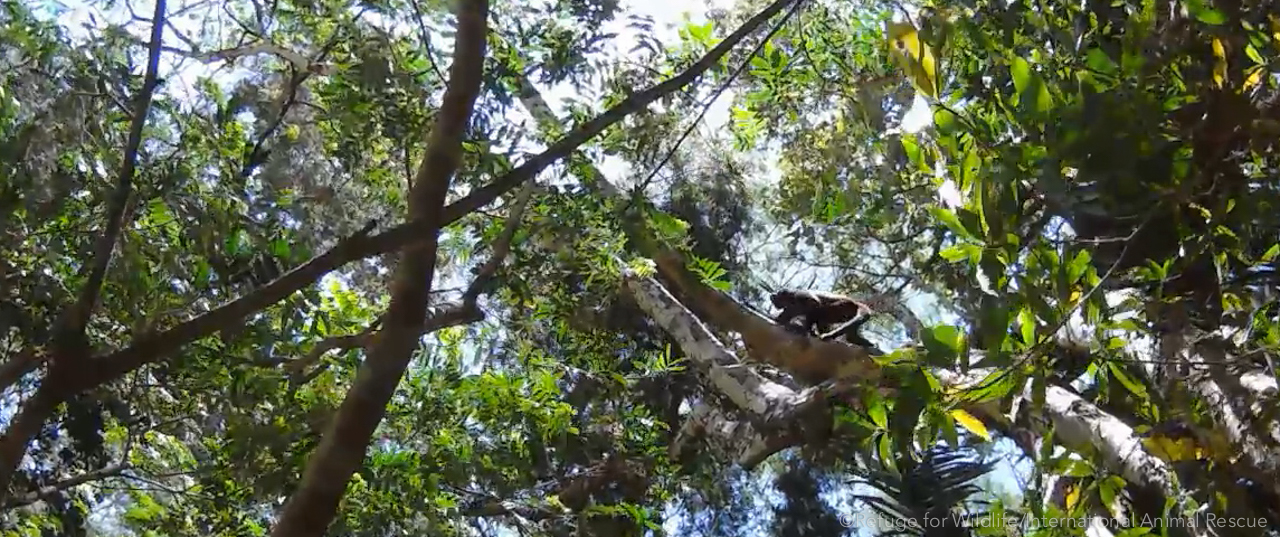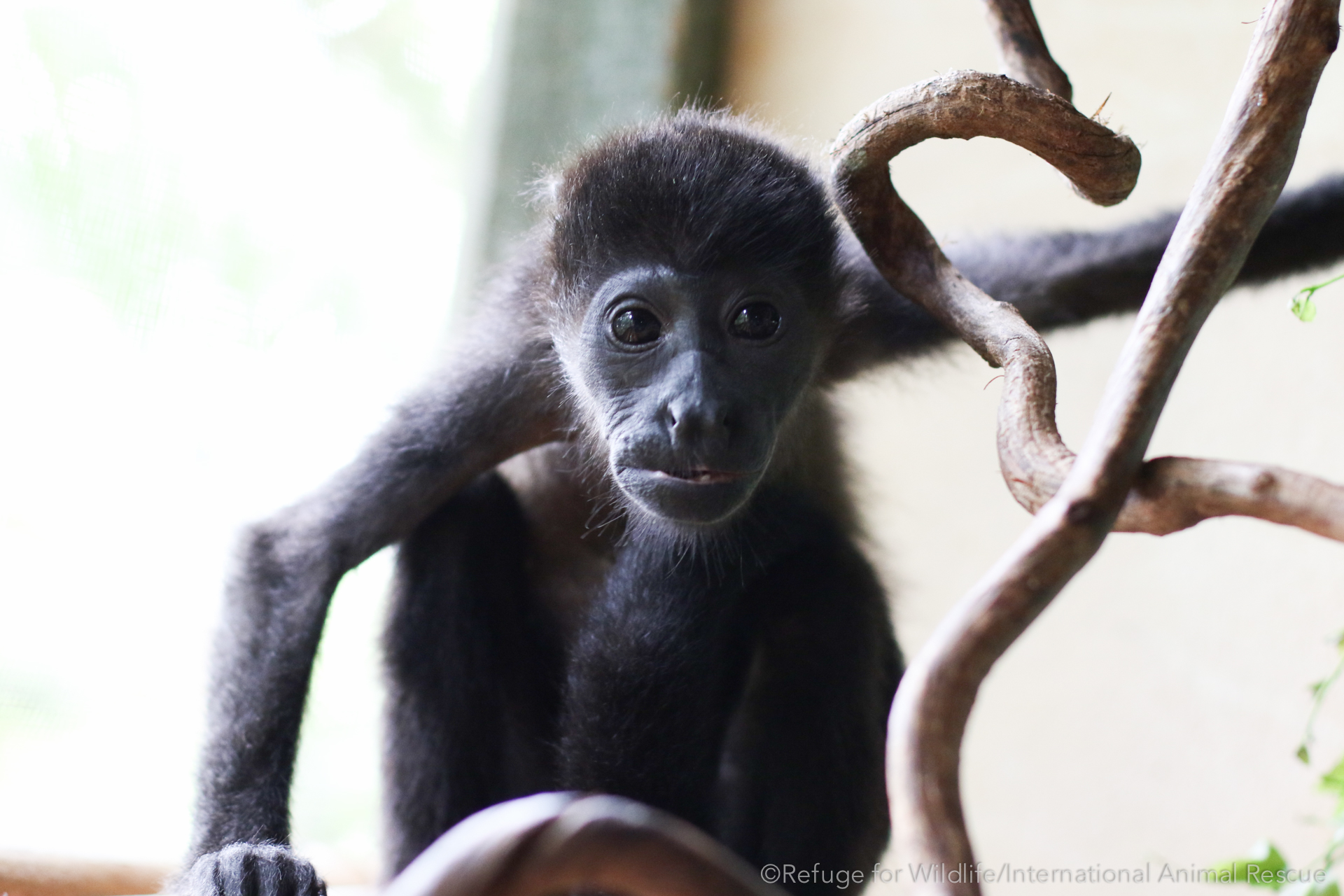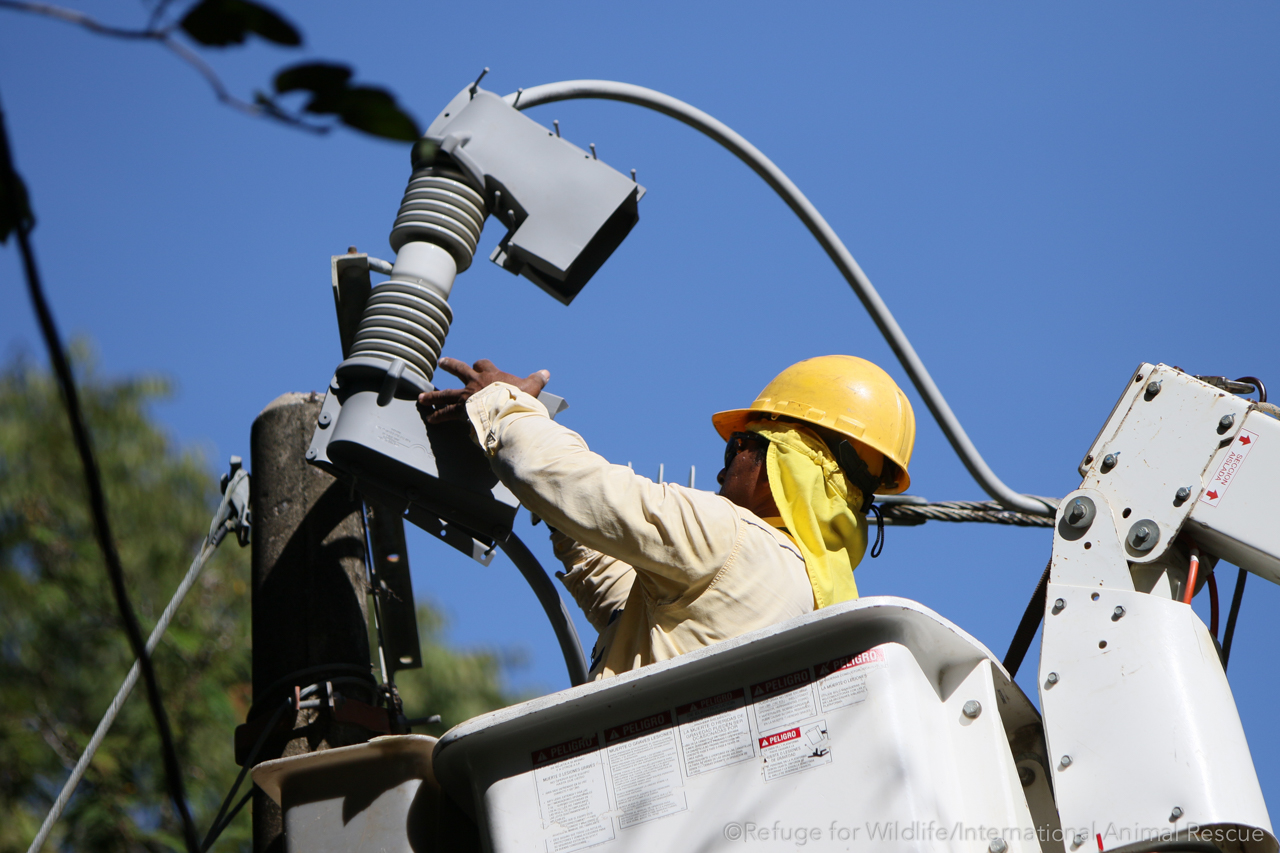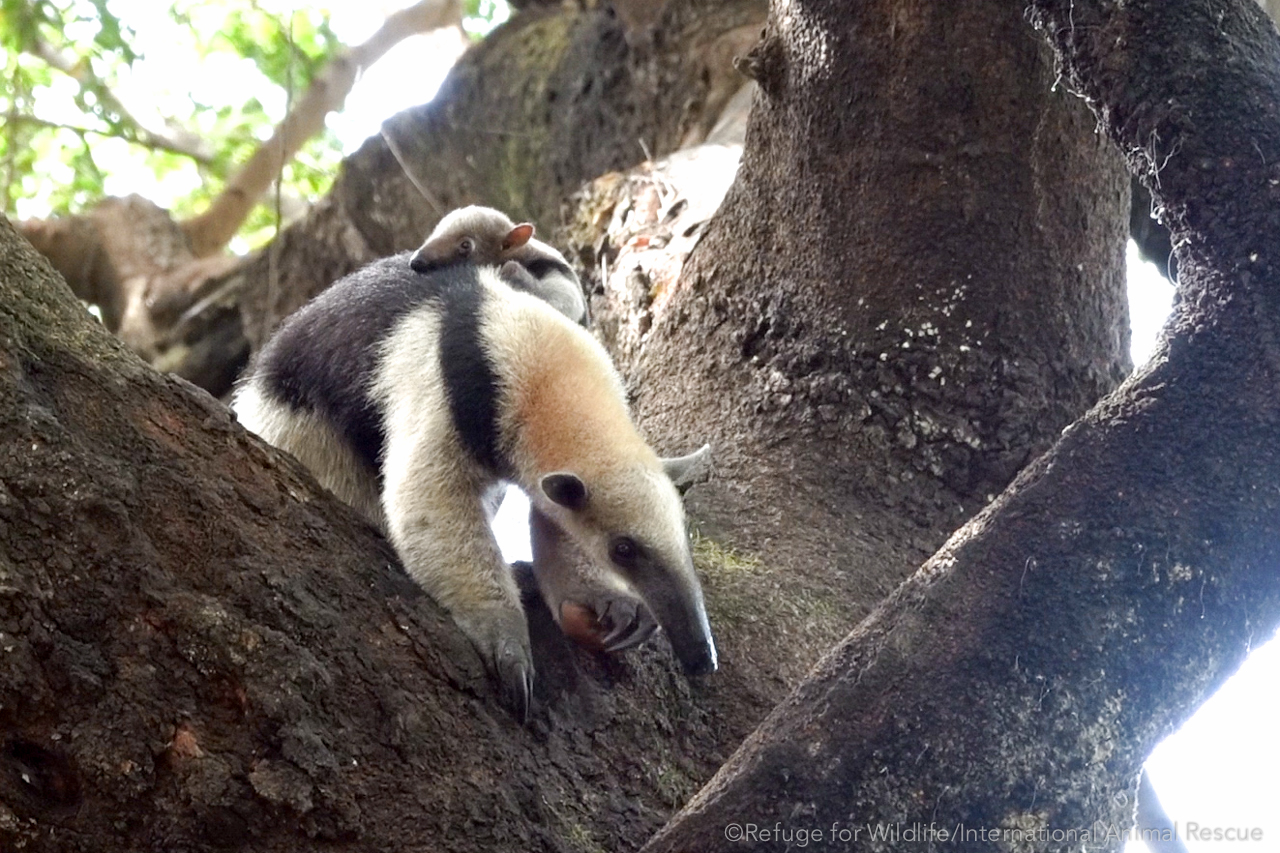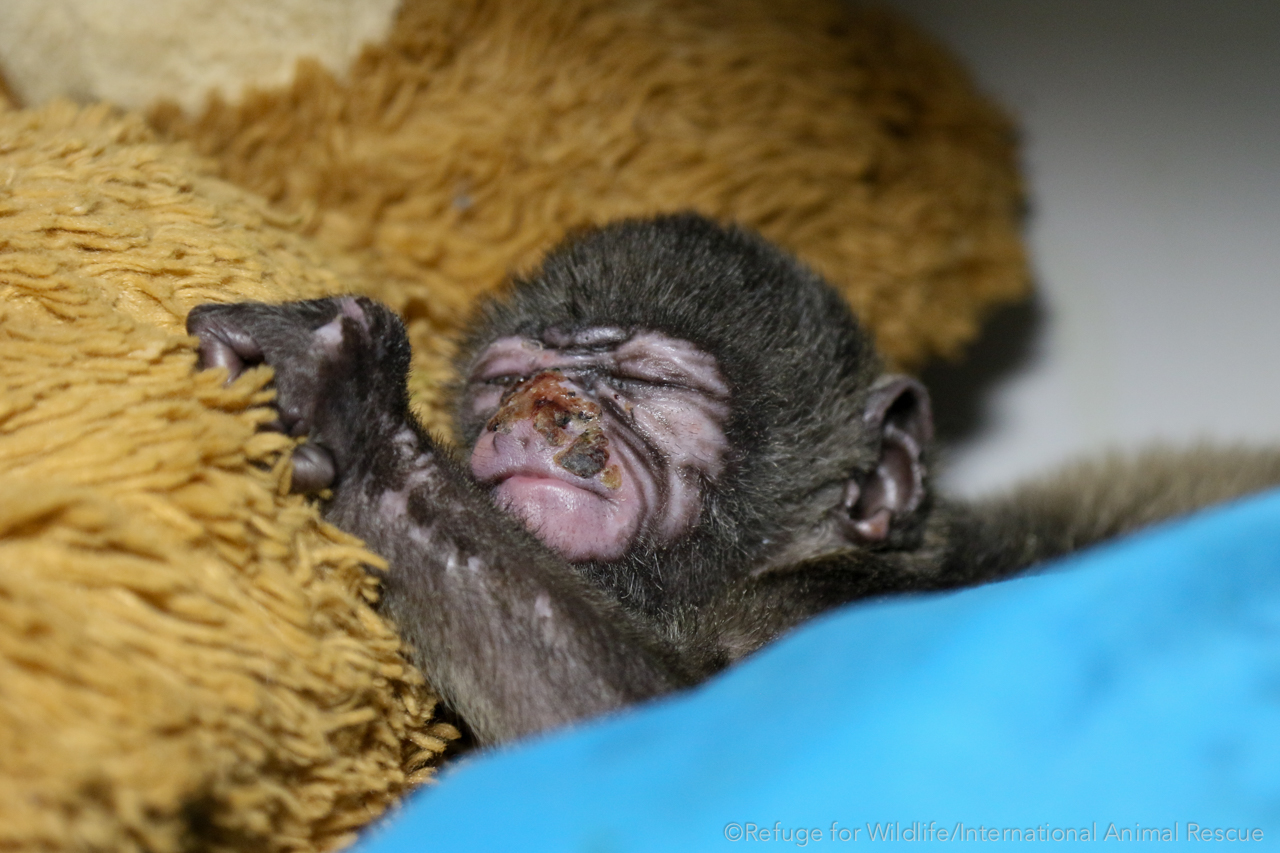
Infant Howler’s Mother Caught on Fire
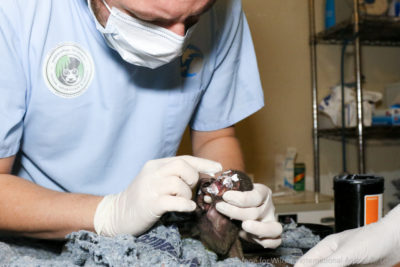 This tiny infant howler monkey was orphaned when her mother climbed onto an uninsulated power transformer in Nicoya which is 1.5 hours from IAR Costa Rica’s rescue center. Liza was rushed to our rescue center by the MINAE (Ministry of Environment and Energy) for treatment and care. Shockingly, Liza’s singed fur, thermal burns to her face inside her nose tell us that her mother’s body caught on fire during the accident. Often, a mother carrying an infant is killed instantly as she absorbs all of the electrical current, but the infant riding on her back only sustains visual injuries to their hands, feet, stomach, and tail (where they are in contact with their mother). In this case, Liza sustained both electrical and thermal burns. It might not be common knowledge, but our rescue team and veterinary staff know all too well that, in addition to electrical burns, incidents involving power distribution often result in the monkey’s fur burning. And if the electrocuted monkey is a mother carrying an infant, the infant’s fur will also start to burn, causing thermal injuries to the skin.
This tiny infant howler monkey was orphaned when her mother climbed onto an uninsulated power transformer in Nicoya which is 1.5 hours from IAR Costa Rica’s rescue center. Liza was rushed to our rescue center by the MINAE (Ministry of Environment and Energy) for treatment and care. Shockingly, Liza’s singed fur, thermal burns to her face inside her nose tell us that her mother’s body caught on fire during the accident. Often, a mother carrying an infant is killed instantly as she absorbs all of the electrical current, but the infant riding on her back only sustains visual injuries to their hands, feet, stomach, and tail (where they are in contact with their mother). In this case, Liza sustained both electrical and thermal burns. It might not be common knowledge, but our rescue team and veterinary staff know all too well that, in addition to electrical burns, incidents involving power distribution often result in the monkey’s fur burning. And if the electrocuted monkey is a mother carrying an infant, the infant’s fur will also start to burn, causing thermal injuries to the skin.
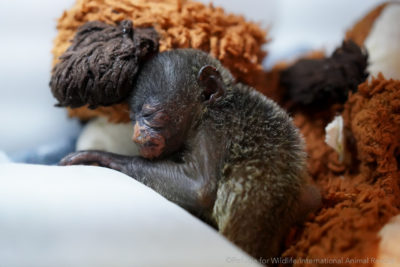 Thanks to the medical attention she’s been receiving, including pain management medication, anti-inflammatories, oxygen therapy, and soothing burn cream, the burned skin has started to heal and is flaking off to reveal new skin which will darken in a few weeks. It has been two weeks since Liza’s accident and, thankfully, she has improved a lot and is now more active and is breathing better. Although superficial burns tend to heal quite quickly with medical attention, electrocution often causes internal damage which can be very serious and slower to manifest.
Thanks to the medical attention she’s been receiving, including pain management medication, anti-inflammatories, oxygen therapy, and soothing burn cream, the burned skin has started to heal and is flaking off to reveal new skin which will darken in a few weeks. It has been two weeks since Liza’s accident and, thankfully, she has improved a lot and is now more active and is breathing better. Although superficial burns tend to heal quite quickly with medical attention, electrocution often causes internal damage which can be very serious and slower to manifest.
Liza is receiving around-the-clock care inside our wildlife clinic where she is continually monitored by our trained staff and onsite veterinarian. She is currently snuggled up with a hot water bottle and teddy bear inside our temperature-controlled incubator. The prognosis for electrocuted wildlife is not good. In addition to external visual injuries, which we can treat, there are often internal injuries that are slower to manifest and cause permanent and fatal damage to internal organs. We will continue to monitor Liza’s bloodwork and check for any signs of organ damage.
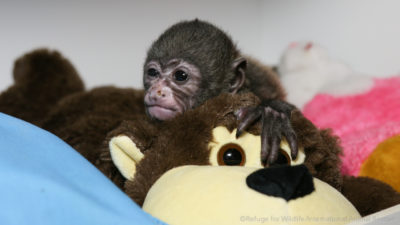 A big thank you to everyone who made a donation on Giving Tuesday, through our partners International Animal Rescue, to help us purchase hot water bottles for our orphaned howlers!
A big thank you to everyone who made a donation on Giving Tuesday, through our partners International Animal Rescue, to help us purchase hot water bottles for our orphaned howlers!
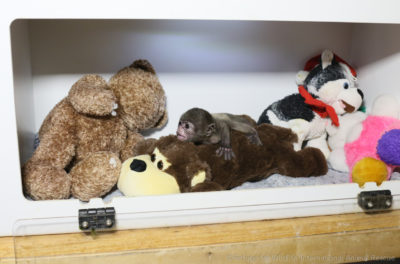 Liza was the first to enjoy the comfort of our new hot water bottles! Delivered all the way from the UK, these plush monkeys have a hot water bottle inside them which creates a warm and comforting toy for our infants to snuggle! Liza absolutely loves it because it is similar in color and texture to a mama howler’s fur and the warm simulates that of her mother’s body. This is bringing her a lot of comfort and reducing stress while she continues her oxygen therapy inside the incubator in our wildlife clinic.
Liza was the first to enjoy the comfort of our new hot water bottles! Delivered all the way from the UK, these plush monkeys have a hot water bottle inside them which creates a warm and comforting toy for our infants to snuggle! Liza absolutely loves it because it is similar in color and texture to a mama howler’s fur and the warm simulates that of her mother’s body. This is bringing her a lot of comfort and reducing stress while she continues her oxygen therapy inside the incubator in our wildlife clinic.
Help us continue to give Liza the care she needs by making a donation online. You can also make a donation to our Stop the Shocks program and help us make more electrical transformers safe for monkeys and other arboreal wildlife.
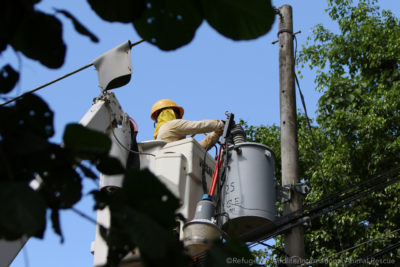 On average, IAR Costa Rica responds to over 100 electrocuted howler monkey rescue calls each year. Over half of these monkeys die at the scene or have to be euthanized following a comprehensive veterinary assessment due to the severity of their injuries. Because the survival rate for electrocution victims is low, we feel that focusing on prevention is the best solution.
On average, IAR Costa Rica responds to over 100 electrocuted howler monkey rescue calls each year. Over half of these monkeys die at the scene or have to be euthanized following a comprehensive veterinary assessment due to the severity of their injuries. Because the survival rate for electrocution victims is low, we feel that focusing on prevention is the best solution.
Our Wildlife Protection Team wants to Stop the Shocks and is dedicated to ending wildlife electrocutions by insulating transformers, installing rope bridges in the deforested area,s and trimming back tree branches to limit wildlife access to electrical cables.
There is currently no law that is enforced to ensure electrical distribution is safe for arboreal wildlife – we have taken on this task because each day we witness firsthand the injuries and deaths caused by electrocution. We must Stop the Shocks to reduce the amount of injured and orphaned wildlife in our care. None of this amazing work would be possible without support from the public. Help us prevent wildlife electrocutions by insulating your transformers.
If you’re interested in learning more about this issue, we invite you to view the attached comprehensive document which details the problems we are facing: Wildlife Electrocutions

